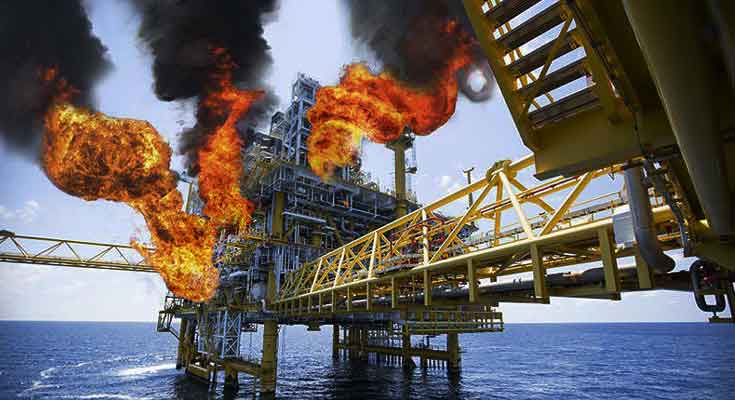Working on an oil rig is inherently dangerous, with workers exposed to a variety of hazards every day. The heavy machinery, the volatile nature of oil and gas, and the challenging offshore or onshore environments all contribute to the high risk of accidents and injuries. When an accident does occur, it can result in severe injuries that affect a worker’s life permanently. In these situations, an oil rig injury lawyer is vital to helping injured workers receive the compensation they are entitled to.
An oil rig injury lawyer is a specialized attorney who represents workers injured while working on oil rigs or in the oil and gas industry. These attorneys focus on personal injury claims related to the offshore or onshore oil and gas sector. The role of an oil rig injury lawyer is to ensure that victims receive proper compensation for their injuries, lost wages, pain and suffering, medical bills, and more.
Understanding Oil Rig Work and the Risks Involved
Oil rigs both offshore and onshore are some of the most dangerous workplaces in the world. Workers on oil rigs face a range of hazards daily, including:
Heavy machinery and equipment: Cranes, drills, pumps, and other equipment are constantly in use, and accidents involving these machines can result in serious injuries or fatalities.
Slips, trips, and falls: Oil rigs are often wet, slippery environments, and workers may slip or fall while navigating the various levels of the rig.
Fires and explosions: The presence of flammable gases and liquids on oil rigs makes the risk of fire and explosions very real. A spark or mishap can lead to catastrophic accidents.
Exposure to harmful chemicals: Workers may be exposed to toxic substances, such as hydrogen sulfide gas or chemicals used in drilling operations, which can lead to respiratory issues, chemical burns, and long-term health problems.
Helicopter crashes and maritime accidents: In offshore oil rigs, workers frequently travel by helicopter to and from the rig, and accidents involving helicopters or ships can result in devastating injuries or fatalities.
Fatigue: Oil rig workers often work long shifts in harsh conditions, which can lead to fatigue and increase the risk of accidents.
These hazards are compounded by the isolated nature of oil rigs, which makes access to medical assistance difficult in the event of an emergency. Furthermore, the remote locations of offshore rigs can complicate the legal processes and make pursuing a claim more challenging.
The Role of an Oil Rig Injury Lawyer
An oil rig injury lawyer specializes in legal cases related to injuries sustained while working on an oil rig. They help injured workers navigate the legal system, identify responsible parties, and ensure they receive the financial compensation they deserve. Given the complexities of oil rig injury cases, including offshore workers’ rights, federal regulations, and corporate liability, the role of an experienced attorney is essential.
Some key responsibilities of an oil rig injury lawyer include:
Investigating the Incident
An oil rig injury lawyer’s first task is to thoroughly investigate the incident that caused the worker’s injury. This investigation will involve gathering evidence from various sources, including accident reports, safety logs, witness statements, medical records, and photographs of the accident site. Additionally, lawyers may work with experts in the field to conduct accident reconstructions or to identify the root cause of the accident, such as faulty equipment or improper safety protocols.
Identifying Responsible Parties
In many oil rig injury cases, multiple parties may be responsible for the accident. The oil rig injury lawyer will identify all responsible parties and determine who should be held liable for the injuries. Some potential responsible parties in oil rig injury cases include:
The employer: Oil rig companies are required to provide a safe working environment for their employees. If the employer failed to adhere to safety standards or neglected to maintain equipment, they may be liable for the worker’s injuries.
Contractors and subcontractors: Oil rigs are often staffed by contractors and subcontractors, who may be responsible for specific tasks on the rig. If the injury occurred due to the negligence of a contractor or subcontractor, they may be held liable.
Manufacturers of equipment: If an accident was caused by defective or poorly designed equipment, the manufacturer of that equipment may be held liable for the worker’s injury.
Third parties: In some cases, a third party not directly involved in the oil rig operation may be responsible for the injury, such as a supplier or a maintenance service provider.
Handling Workers’ Compensation Claims
Many workers injured on oil rigs are eligible for workers’ compensation benefits. Workers’ compensation provides financial support for medical expenses, lost wages, and rehabilitation costs. However, workers’ compensation may not cover all damages, and it may not fully compensate workers for pain and suffering.
An oil rig injury lawyer will assist the injured worker in filing workers’ compensation claims, ensuring that all necessary paperwork is completed and that the worker receives the appropriate benefits. Additionally, the lawyer will evaluate whether there are other sources of compensation, such as third-party liability or personal injury claims.
Navigating the Jones Act
The Jones Act is a federal law that provides protections for workers who are injured while working on vessels, including offshore oil rigs. Under the Jones Act, injured maritime workers have the right to sue their employers for negligence. If the oil rig is classified as a vessel or a “seaworthy” ship, the injured worker may be able to file a claim under the Jones Act rather than relying solely on workers’ compensation.
An oil rig injury lawyer with experience in maritime law will be well-versed in the complexities of the Jones Act and how it applies to offshore oil rig workers. The lawyer will help the injured worker pursue the best possible legal options, whether through workers’ compensation or a Jones Act claim.
Negotiating Settlements and Representing Clients in Court
Once the lawyer has completed their investigation, they will attempt to negotiate a fair settlement with the responsible parties or their insurance companies. Insurance companies often attempt to settle quickly and for as little as possible. A skilled oil rig injury lawyer will fight for the injured worker’s rights and ensure they are compensated for all their losses.
If a fair settlement cannot be reached, the lawyer will proceed to litigation. The lawyer will represent the injured worker in court, advocating for their best interests and working to secure the compensation they deserve.
Types of Injuries Common on Oil Rigs
Oil rig workers are exposed to many types of accidents and injuries, ranging from minor to life-threatening. Some of the most common injuries sustained on oil rigs include:
Traumatic Brain Injuries (TBI): Falling objects, slips, trips, and falls can result in head injuries. Severe TBIs may lead to permanent brain damage and long-term disability.
Spinal Cord Injuries: The heavy equipment and machinery on oil rigs can cause crushing injuries to the spine, leading to partial or complete paralysis.
Burns: Fires and explosions are significant hazards on oil rigs, and workers can suffer severe burns from these incidents.
Broken Bones: Workers may suffer fractures from falls, being struck by objects, or accidents involving heavy machinery.
Amputations: In severe accidents, workers may lose limbs, particularly if they are caught in machinery or equipment.
Respiratory Issues: Exposure to toxic gases, fumes, or chemicals can cause long-term respiratory damage, including conditions like chronic obstructive pulmonary disease (COPD).
Hearing Loss: The loud noise levels on oil rigs can lead to permanent hearing loss if workers are not provided with proper ear protection.
Psychological Injuries: In addition to physical injuries, workers may suffer from PTSD or depression after experiencing or witnessing a traumatic event on an oil rig.
Why Hiring an Oil Rig Injury Lawyer Is Crucial
Oil rig injury claims are often complicated and involve complex legal, medical, and insurance issues. An oil rig injury lawyer is crucial for several reasons:
Expert Knowledge: Oil rig injury lawyers specialize in handling cases within the oil and gas industry and are familiar with the laws and regulations that apply to this sector.
Maximizing Compensation: An experienced attorney will ensure that the injured worker receives full compensation for medical bills, lost wages, pain and suffering, and other damages.
Navigating Complex Legal Systems: Oil rig injury claims may involve both state and federal law, including the Jones Act, workers’ compensation, and maritime law. A lawyer with experience in these areas can navigate the complexities and provide the best legal representation.
Advocacy: An oil rig injury lawyer serves as a strong advocate for the injured worker, protecting their rights and fighting against insurance companies and employers who may attempt to minimize compensation.
Peace of Mind: Pursuing an injury claim can be a lengthy and stressful process. Hiring a lawyer allows the injured worker to focus on their recovery while the lawyer handles the legal work.
Conclusion
Oil rig workers face significant risks every day due to the hazardous nature of their work environment. When an injury occurs, it can result in severe consequences that affect a worker’s health, finances, and quality of life. In these situations, hiring an experienced oil rig injury lawyer is critical to ensuring the worker’s rights are protected and that they receive the compensation they are entitled to.
Oil rig injury lawyers specialize in handling complex injury claims, from investigating the cause of the accident to navigating federal and state regulations, negotiating settlements, and representing clients in court. They are committed to helping injured workers get back on their feet and secure the financial support they need to move forward with their lives.If you or a loved one has been injured while working on an oil rig, reaching out to a skilled oil rig injury lawyer can make a significant difference in the outcome of your case. With their expertise and advocacy, they can guide you through the legal process and help you achieve the best possible result.




